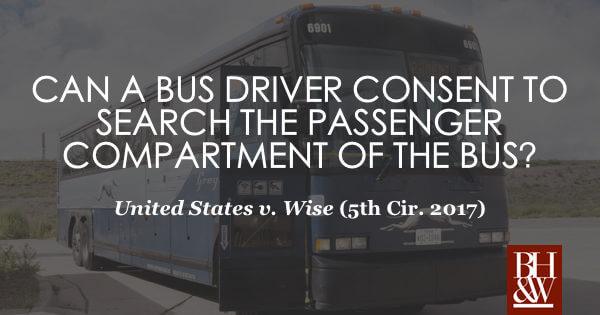The United States Supreme Court heard oral arguments a couple of weeks ago on Fernandez v. California. HERE is Scotusblog’s page on the case.
The case boils down to whether and to what extent a person may deny consent to search that is given by a co-tenant. Below are the facts of the case. A link to the oral argument audio is posted below. We will be watching for a decision on this case as it stands to affect search and seizure law across the country.
FACTS: Police officers investigating an assault and robbery saw Appellant run into an apartment building. Once they were inside the building, officers heard screams coming from one of the apartments. The officers knocked on the door and Roxanne Rojas opened it. When the officers asked Rojas to step outside so they could conduct a sweep of the apartment, Appellant stepped forward and told the officers not to enter. The officers arrested Appellant for the assault and robbery and removed him from the scene. The officers obtained consent from Rojas to search the apartment. The officers seized weapons, gang paraphernalia and other evidence.
The trial court denied Appellant’s motion to suppress the evidence recovered from the apartment. The California Court of Appeal held Rojas’ consent to search the apartment she shared with Appellant was valid.
In Georgia v. Randolph, the United States Supreme Court held police officers may not conduct a warrantless search of a home over the express refusal of consent by a physically present resident, even if another resident consents to the search. After Randolph, in United States v. Murphy, the Ninth Circuit Court of Appeals extended Randolph, holding if a defendant expressly withholds consent to search, a warrantless search conducted after the defendant has left or been removed from the residence is not valid, even if a co-tenant subsequently consents. However, the Fourth, Fifth, Seventh, and Eighth Federal Circuit Courts of Appeals, as well as the Colorado and Wisconsin State Supreme Courts have rejected the Ninth Circuit’s analysis in Murphy. These courts have held even if a defendant expressly refuses consent to search his residence, a co-tenant’s consent obtained after the defendant leaves or is lawfully removed will support a warrantless search by police officers.
The issue before the Supreme Court is whether a defendant must be personally present and objecting when police officers ask a co-tenant for consent to conduct a warrantless search or whether a defendant’s previously stated objection, while physically present, to a warrantless search is a continuing assertion of his Fourth Amendment rights which cannot be overridden by a co-tenant.
The Court heard oral arguments in this case on November 13, 2013. To listen to the audio from the arguments, click HERE.










